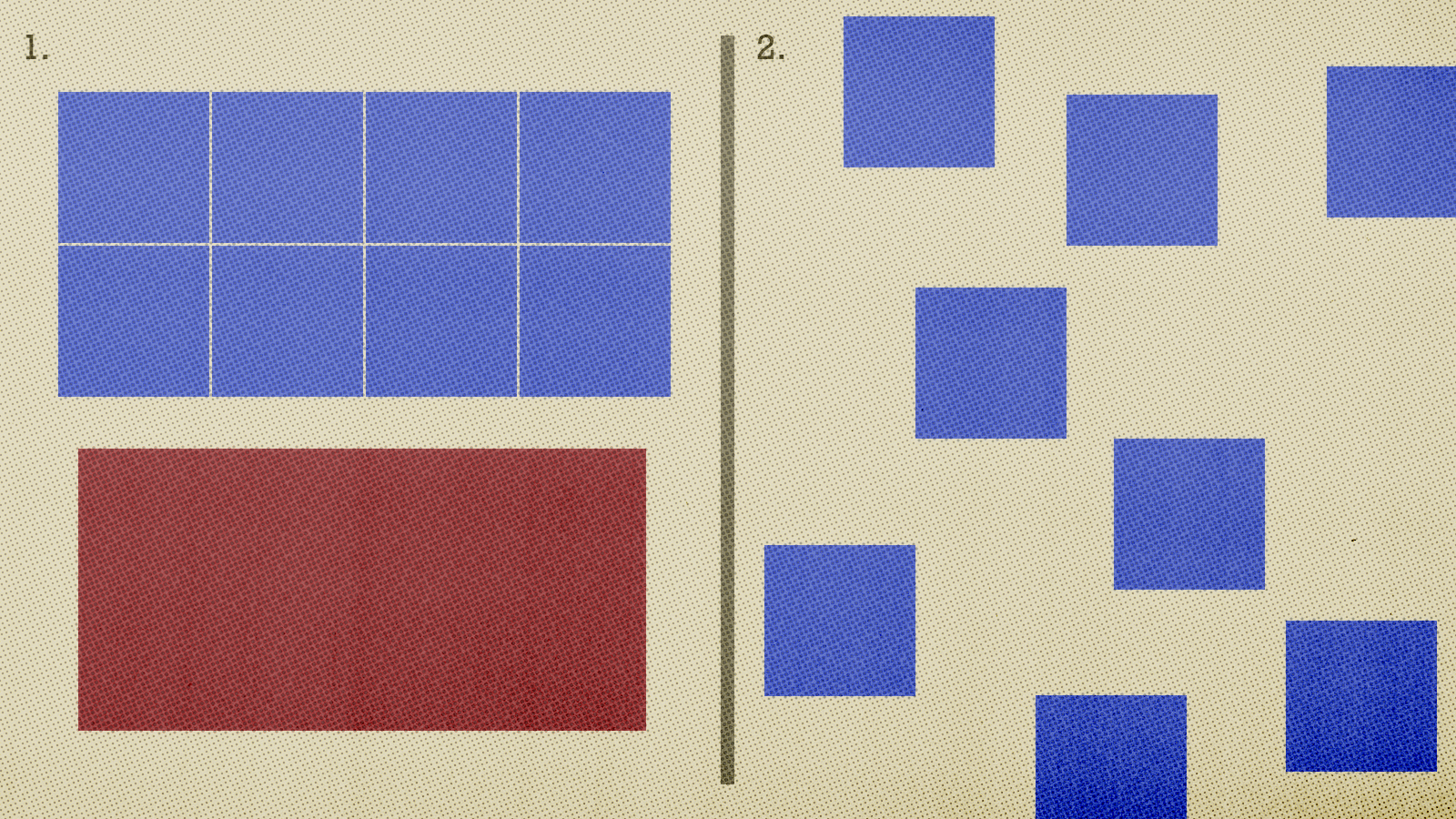A coalition unites to defeat a rightwing populist. Then what?
Why Joe Biden's governing problem is a global one


A free daily email with the biggest news stories of the day – and the best features from TheWeek.com
You are now subscribed
Your newsletter sign-up was successful
Right-wing populists are losing elections. Their latest defeat took place a week ago in the Czech Republic, when a fractious coalition of parties prevailed over Andrej Babis, the country's billionaire prime minister.
Something similar happened in the runoff round of presidential elections in France four years ago, when centrist Emmanuel Macron defeated far-right Marine Le Pen. It happened again in Israel earlier this year. Macron hopes to re-enact the strategy in elections next spring — as do opponents of Viktor Orbán in Hungary, whose Fidesz Party also faces the voters next year, and those who hope to defeat the Law and Justice party in Poland in 2023.
This has historically been called a popular front strategy — even though, when deployed against populists, it sometimes ends up looking more like an establishment front. It entails an ideologically disparate coalition uniting to defeat a specific candidate or party that would otherwise win a plurality of votes. If the right-wing populist is Candidate X, the opponents set aside their differences and combine around a platform of Not X that pulls more votes than the populist.
The Week
Escape your echo chamber. Get the facts behind the news, plus analysis from multiple perspectives.

Sign up for The Week's Free Newsletters
From our morning news briefing to a weekly Good News Newsletter, get the best of The Week delivered directly to your inbox.
From our morning news briefing to a weekly Good News Newsletter, get the best of The Week delivered directly to your inbox.
Kicking populists out of power is good, as is keeping them from winning in the first place. But that doesn't mean the popular front strategy solves the problem that right-wing populism poses to liberal democracies around the world. On the contrary, that problem can fester while the victorious (but ideologically incoherent) coalition attempts to govern, opening a path to a return to power for the right-wing populists the next time elections are held.
We can see this dynamic at work right here at home — in the United States.
The American election of 2020 isn't typically thought of as a popular front contest, but it was. Joe Biden won by making the presidential election about the awfulness of Donald Trump and the existential threat he posed to democracy. That had the effect of uniting the left, center left, and a decent portion of the center right in a popular front against Trump. In the end, this Not Trump coalition prevailed by seven million votes and several states in the Electoral College. (In House and Senate races, where Trump wasn't a candidate and the Not Trump strategy couldn't be as effectively deployed, the results were much closer to a tie, resulting in Democratic control of Congress by the thinnest of margins.)
Many centrists remain committed to the strategy and hope to deploy it in 2024 if Trump runs again. Robert Kagan made an appeal for it in his recent long, deeply troubling Washington Post essay about the danger that Trump still poses to American democracy. In Kagan's view, Biden should govern by locking arms with Republican Mitt Romney to his right and as many liberals and progressives as he can to his left so that his winning coalition from 2020 can be reconstituted three years from now to defeat Trump by the widest possible margin.
A free daily email with the biggest news stories of the day – and the best features from TheWeek.com
There's just one problem with this advice: Campaigning and governing are very different things.
The progressive left, center-left liberals, and center-right conservatives who consistently voted for Republicans until 2016 might be able to agree on the awfulness of Trump. But they aren't going to agree on the right size or scope of government spending, let alone on judicial appointments and culture-war issues. To govern is to make choices. Will Biden govern as a moderate and hold on to the support of those former Republicans to his right? If he does, he risks losing the support of the left and inviting a primary challenge in 2024 and/or convincing progressive voters to stay home on Election Day. Or will Biden govern as a progressive and risk losing the center and perhaps inviting a third-party challenge from someone like Andrew Yang who could act as a spoiler and throw the election to Trump?
A CNN poll released this week shows how evenly the Democratic Party is split. The poll asked Democrats and Democratic-leaning independents whether the left or the center is doing more to help the party. Forty-nine percent sided with progressives working to pass an ambitious agenda, while 51 percent said moderates trying to contain spending were proving more helpful at advancing the party's prospects. Both groups probably agree that Trump is a menace. But they disagree deeply about how to wield power once it has been won.
That means that Biden and the anti-Trump cause face a potentially insuperable challenge. Running for president against Trump makes them stronger but governing invariably makes them weaker, with one faction or another in their electoral coalition inevitably feeling snubbed.
Meanwhile, the populists are still there, waiting for their next chance to win power.
Consider France: Macron won easily in the second round in 2017. Four years later, Le Pen is running again, but so, most likely, is Eric Zemmour, a media firebrand who may be even more extreme in his far-right views. Together, Le Pen and Zemmour are polling at about 31 percent — close to the 34 percent Le Pen won in her head-to-head with Marcon four years ago.
It's good that the far-right was denied power back then, and it will be good if the same popular-front strategy works again next year. But the underlying problem remains. How long can a Not Populist coalition that's deeply divided on most other issues — because it stretches from the far left to the center-right — maintain a lock on power?
Not Them isn't a governing agenda.
To the extent that those in power try to govern as if it is, they run the risk of making the populists' case for them, demonstrating that the establishment seeks nothing more than the perpetuation of its own power and privileges. On the other hand, if the victorious anti-populist coalition does what Joe Biden and the Democrats have done and chooses to enact the priorities of one of its constituent factions, it will split the coalition, making it much harder to reconstitute in future election cycles.
Right-wing populists holding power is a problem. But the source of that problem — and hence the bigger problem — is that a substantial segment of the population in democracies around the world finds the populist message appealing. As long as that remains the case, the popular-front response will be at most a temporary solution — and thus no real solution at all.
Damon Linker is a senior correspondent at TheWeek.com. He is also a former contributing editor at The New Republic and the author of The Theocons and The Religious Test.
-
 The ‘mad king’: has Trump finally lost it?
The ‘mad king’: has Trump finally lost it?Talking Point Rambling speeches, wind turbine obsession, and an ‘unhinged’ letter to Norway’s prime minister have caused concern whether the rest of his term is ‘sustainable’
-
 The billionaires’ wealth tax: a catastrophe for California?
The billionaires’ wealth tax: a catastrophe for California?Talking Point Peter Thiel and Larry Page preparing to change state residency
-
 Bari Weiss’ ‘60 Minutes’ scandal is about more than one report
Bari Weiss’ ‘60 Minutes’ scandal is about more than one reportIN THE SPOTLIGHT By blocking an approved segment on a controversial prison holding US deportees in El Salvador, the editor-in-chief of CBS News has become the main story
-
 Memo signals Trump review of 233k refugees
Memo signals Trump review of 233k refugeesSpeed Read The memo also ordered all green card applications for the refugees to be halted
-
 Has Zohran Mamdani shown the Democrats how to win again?
Has Zohran Mamdani shown the Democrats how to win again?Today’s Big Question New York City mayoral election touted as victory for left-wing populists but moderate centrist wins elsewhere present more complex path for Democratic Party
-
 Millions turn out for anti-Trump ‘No Kings’ rallies
Millions turn out for anti-Trump ‘No Kings’ ralliesSpeed Read An estimated 7 million people participated, 2 million more than at the first ‘No Kings’ protest in June
-
 Democrats: Harris and Biden’s blame game
Democrats: Harris and Biden’s blame gameFeature Kamala Harris’ new memoir reveals frustrations over Biden’s reelection bid and her time as vice president
-
 ‘We must empower young athletes with the knowledge to stay safe’
‘We must empower young athletes with the knowledge to stay safe’Instant Opinion Opinion, comment and editorials of the day



